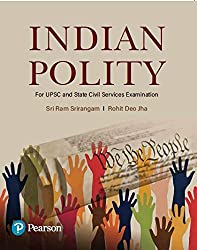Prerogative Writs in India
There are five writs in India:
Habeas Corpus
It means to produce the person in the body.
It applies in cases where a person is alleged to have been illegally detained.
This writ safeguards the personal liberty of every individual.

Mandamus
It is meant to direct any authority to perform its legal duty.
Mandamus may be issued against any authority, officers, government, or even judicial bodies that do not or refuse to perform a public duty and discharge the legal obligation.
Certiorari
It lies against Judicial or quasi-judicial authorities, and ‘it means to be informed‘. The writ of certiorari is issued to quash illegal orders of Judicial or quasi-judicial bodies.
Quo-Warranto (Article-32)
It is a question asking with ‘what authority or warrant’.
This is meant to ascertain the legal position in regard to the claim of a person to hold a public office.
Prohibition
It means to forbid. It is issued by the higher court to the lower court, to prevent the smaller court from exceeding its jurisdiction.
It can be issued only against the Judicial and quasi-judicial authorities. This writ is not available against administrative authorities, legislative bodies, and private individuals or bodies.
